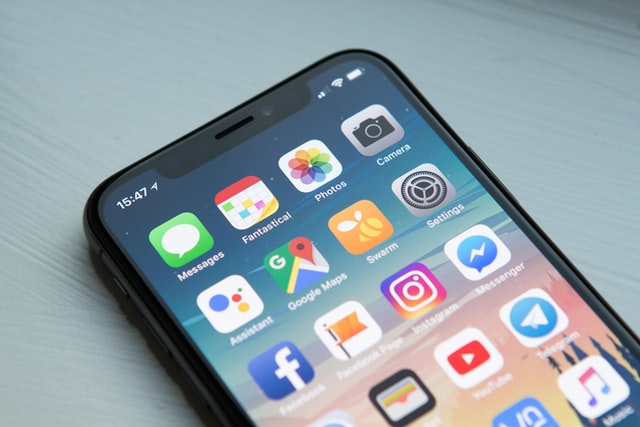
Body + Mind is reader-supported. We may earn an affiliate commission when you buy through some of the links on our site.
In today’s modern world, our phones can bring abundant comforts and capabilities to our fingertips, but they can also quickly cross into unhealthy territory. While social media helps keep you connected to your friends and loved ones, it can also be a dangerous game of endless scrolling and wasted time. Even the healthiest of phone uses — like the news, entertainment and e-reading — have their limits.
The glow of screens is bad for eye health, as it can cause retinal damage, nearsightedness and dry eyes. While screen time is OK in moderation, many people spend hours staring at them each day. Phones can be addicting — sucking you in without much of a break. You can break the cycle, though.
It’s much easier to stick with old habits than to create new, healthy ones. While it may take some getting used to, it’s important to remain diligent and stick to it so you can adjust to your new lifestyle a little freer from the phone.
While many people think that app and screen time limits are for kids, anyone can put them to use. When you’re addicted to your phone, sometimes rules and strict guidelines can do more good than you realize. If there are specific apps you constantly check, set time limits for just a few minutes a day. You can even set it much lower than you usually go, like three to five minutes, to show you truly can live without those apps.
If it’s not specific apps that keep you tied, you can always set an overall screen time limit that ensures you don’t spend any more time on your phone than you want to. While these rules don’t need to last forever, they could help you keep your phone use in check in the long term. However it works best for you, lean into it.
While many people start and end their day with a peek at their email or a bit of Facebook scrolling, it actually makes for tons of unhealthy habits. Charging your phone by the bed feels easy and effortless, but if you’re trying to break the ties, it might be helpful to consider putting it in another room entirely. Plug it in on the kitchen counter or the living room side table and leave it there for the evening.
When you keep screens out of the bedroom, you’ll sleep better, be more mindful with your mornings and build better connections with everyone in your household.
One of the reasons why so many people find it difficult to live without their phones is because we rely on them so much. From GPS to checking if that coffee shop is actually open, phones do so much in the practicality realm. You can take baby steps, though. Go for a walk around the block without your phone. Work out or do yoga outside without it. Listen to the sounds of nature around you and take it all in.
If you’re really looking to get serious, try putting your phone away for a week or more. Detoxes have been known to help people kick the addiction quickly. This isn’t for everyone — plenty of people have kids, families and bosses that need to get ahold of them at a moment’s notice. If that sounds like you, this might not be your calling.
If a phone detox is in your wheelhouse, all you have to do is lock your phone in a drawer or box for however much time you determine you need. You can even journal about how you feel each day to document your experience and remain mindful of it. That way, you curb the temptation when you do get your cellphone back in hand.
Sometimes, the biggest hurdle to kicking the phone addiction is replacing your lost time with something else. Some people spend upwards of seven hours a day on their phones, and ripping that away can be a bit jarring. Reading is a great habit to put in its place. It’s entertaining, and it helps you learn. Even tackling just a few pages a day can help you build momentum.
Staying off your phone is a process, not a one-time cleanse. It’s about remaining conscious every day to stick to your principles so you can lead a healthier and more balanced life. You have the power to kick the phone addiction — all you have to do is commit.
Your email address will only be used to send you our newsletter, and at any time you may unsubscribe. For more information, see our Privacy Policy.